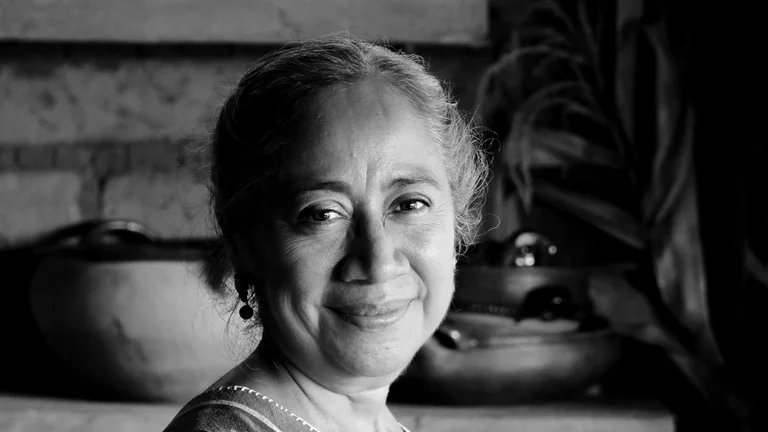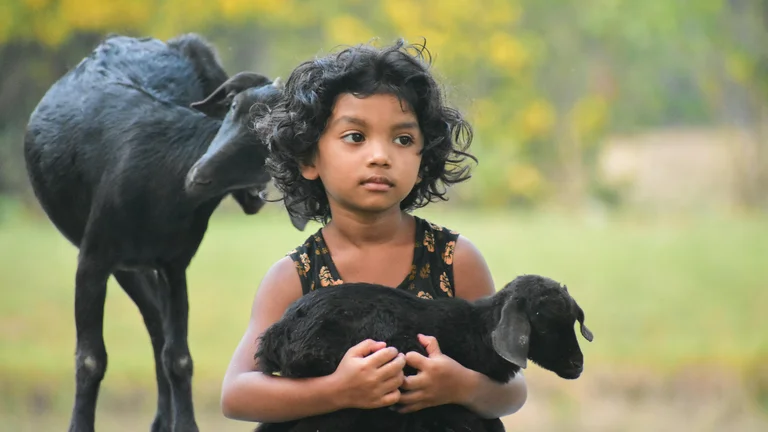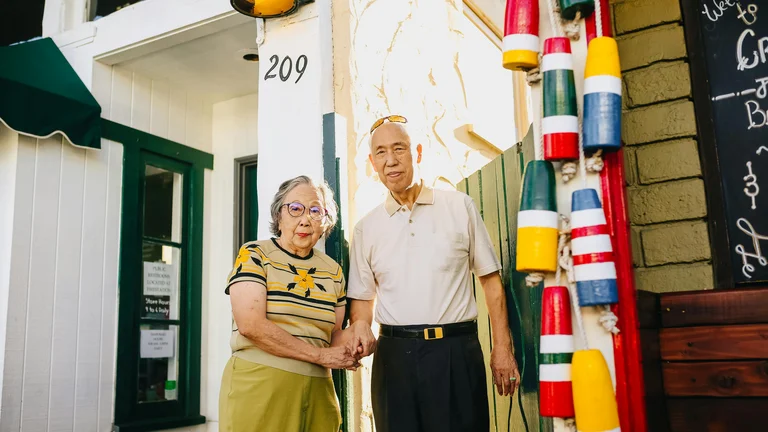
In the captivating realm of Korean dramas, or K-Dramas, food and cooking often serve as compelling narrative devices that reveal deeper character traits and relationships. A recurring, endearing trope features characters who, despite their glaring lack of culinary skills, muster the courage to attempt cooking. This paradoxical blend of incompetence and determination not only injects humor and humility into storylines but also humanizes characters, making them relatable to viewers. This article explores in detail the phenomenon of "K-Drama Characters Who Can’t Cook But Try Anyway," examining their motivations, how their cooking attempts drive plot and humor, and what these moments signify culturally and psychologically. Through exploring iconic characters, specific scenes, and thematic implications, we will understand why this trope remains beloved and enduring.
The Narrative Role of Cooking-Incompetent Characters in K-Dramas
In storytelling, flaws and challenges often forge a character’s identity. Cooking, a fundamental life skill across cultures, becomes a poignant symbol when characters struggle with it. Characters who cannot cook but persist reflect more than mere incompetence—they reveal vulnerability, growth potential, and a striving spirit. K-Dramas commonly use such characters to balance perfectionist or overly capable leads, providing comic relief and grounding idealized narratives in realism. These scenes serve as moments of humility, breaking tension or highlighting emotional connections through shared meals or cooking disasters.
For instance, a character fumbling with a stove or burning a simple dish may initially appear pathetic or funny, but these efforts symbolize their desire to care for others, express love, or assert independence. The repeated failures followed by stubborn persistence showcase resilience, a value deeply esteemed in Korean culture and universally respected. These attempts also often catalyze relationship development—whether romantic knit together moments, elder-young interactions teaching practical life skills, or friendships strengthened over a damaged meal.
Moreover, the trope humanizes characters otherwise defined by career success, beauty, or social status. When someone prim and polished turns into a kitchen klutz, it subverts audience expectations and illustrates multi-dimensionality. Audiences relate better to figures who struggle with ordinary tasks, emphasizing the authenticity beneath dramatized appearances. Thus, cooking failures become more than comedic scenes; they become narrative tools revealing inner personality and eliciting empathy.
Examples of Notable K-Drama Characters Who Can’t Cook But Try
To illustrate the trope’s richness, let’s explore prominent K-Drama characters who have captivated audiences through their kitchen misadventures. Their story arcs demonstrate different reasons for culinary incompetence, unique approaches to trying, and impacts on story development.
1. Ji Eun-Tak from "Goblin" (Guardian: The Lonely and Great God)
Ji Eun-Tak, the cheerful high school girl destined to be the Goblin’s bride, frequently tries her hand at cooking despite lacking skills. Her attempts are innocent and comedic, often resulting in overcooked or bland meals. Despite the failures, her effort symbolizes warmth and a desire to nurture her relationships, especially with the Goblin and the Grim Reaper. Her raw enthusiasm and refusal to give up reflect her youthful optimism and deep affection.
2. On Jung-Seon from "Nevertheless"
On Jung-Seon’s character is marked by emotional restraint and introversion, which extends into her kitchen capabilities—or lack thereof. Scenes where she tries to cook despite frequent mistakes emphasize her willingness to open up and connect with others through food. The vulnerability expressed contrasts her otherwise stoic demeanor, crafting moments of softness and humility that endear her to viewers.
3. Park Sae-Ro-Yi from "Itaewon Class"
One of the most iconic figures in recent K-Drama history, Park Sae-Ro-Yi, founder of a food service business, ironically starts with limited cooking skills. His determination to learn despite early blunders underscores his larger theme of resilience and reinvention. His efforts in the kitchen parallel his struggles against social injustice and personal loss, showing growth via perseverance. This duality between hardship and hope is encapsulated in scenes of him fumbling through recipes but persistently improving.
4. Lee Ji-An from "My Liberation Notes"
Lee Ji-An is a character who finds herself trapped in routine and emotional loneliness. Her timid, awkward attempts at cooking reflect internal uncertainty and a search for self-worth. The imperfections in her culinary attempts mirror her broader struggles for identity and connection. As she gradually learns to cook, the narrative signals personal evolution and subtle empowerment.
Common Motivations Behind Cooking Attempts Despite Incompetence
Across the diverse personalities and storylines, the underlying motivations for cooking attempts by characters unable to cook share common themes. These motivations are multifaceted and carry broader implications regarding character psychology, social norms, and cultural values.
Showing Affection and Care
Cooking in many cultures, Korea included, is closely linked to expressions of care and love. Characters often attempt cooking to demonstrate affection towards family members, romantic interests, or friends. Despite lacking expertise, the act signifies thoughtfulness and effort, which can be more meaningful than culinary skill itself. This extends to traditional expectations where providing meals is viewed as nurturing behavior, hence characters try to fulfill social roles even if imperfectly.
Asserting Independence
For younger characters or those in transitional life phases, cooking often symbolizes self-sufficiency. Learning to prepare food represents stepping into adulthood and autonomy. Characters who can’t cook but try convey a struggle to establish identity beyond reliance on others. Their kitchen mishaps dramatize the challenging process of maturing and embracing responsibility.
Seeking Connection and Overcoming Isolation
Food frequently operates as social glue within narratives. Characters experiencing loneliness or alienation strive to cook as an effort to bridge gaps with others. Even bungled cooking attempts can initiate dialogues, shared laughter, or moments fostering empathy. The act of cooking becomes a pathway toward breaking emotional walls.
Coping Mechanism or Emotional Outlet
Culinary efforts may provide an avenue for characters to channel frustration, anxiety, or sadness. In some K-Dramas, cooking scenes reveal deeper emotional struggles beneath surface-level clumsiness. This can serve as metaphor for characters grappling with life challenges, where imperfect attempts highlight internal battles but also determination to push forward.
Impact of Cooking-Incompetent Characters on K-Drama Storylines
Characters who cannot cook but try anyway influence K-Drama narratives in several critical ways, enhancing emotional depth, character development, and viewer engagement. Understanding this impact reveals why the trope is widely utilized and appreciated.
Facilitating Character Growth
The journey from kitchen disasters to competent cooking mirrors character arcs in self-improvement and self-discovery. Observing characters challenged in this basic life skill making gradual progress symbolizes broader transformations. The process humanizes perfectionist ideals frequently seen in protagonists, making growth tangible and relatable.
Enhancing Relatability and Humor
Unskilled cooking attempts evoke comedic moments that lighten dramatic tension. Unable to perfectly cook a dish, characters engage in slapstick antics, misunderstand instructions, or produce culinary disasters, generating laughter. These humorous intrusions balance intense emotional or plot-heavy episodes, contributing to an overall enjoyable viewing experience.
Strengthening Relationships
Shared cooking moments and resultant food mishaps often serve as catalysts for relationship-building between characters. Whether it’s a romantic partner offering help, friends collaborating in the kitchen, or family members bonding over imperfect meals, these episodes create intimacy. The vulnerability exposed during failed cooking attempts breaks barriers and fosters trust.
Illustrating Cultural Values
Many K-Dramas embed cultural significance within food-related scenes. Cooking incompetence juxtaposed with earnest attempts reflects values such as diligence, humility, and respect for tradition. This thematic interplay enriches storytelling by situating personal struggles within broader social contexts, reflecting Korean norms around family, gender roles, and daily life.
Detailed Table Comparing Cooking-Incompetent Characters Across Selected K-Dramas
To organize insights on key characters who can’t cook but try, below is a comparative table highlighting personalities, cooking challenges, motivations, and narrative purposes.
| Character | Drama | Cooking Challenges | Motivation Behind Attempts | Narrative Role |
|---|---|---|---|---|
| Ji Eun-Tak | Goblin | Clumsiness, overcooking, burnt dishes | Express love and warmth | Comedic relief, emotional bonding |
| On Jung-Seon | Nevertheless | Lack of confidence, bland taste | Open up emotionally, connect with others | Character vulnerability, relationship softening |
| Park Sae-Ro-Yi | Itaewon Class | Beginners mistakes, lack of technique | Establish independence, resilience | Symbolizes growth, perseverance |
| Lee Ji-An | My Liberation Notes | Timid execution, inconsistent results | Self-discovery, emotional empowerment | Metaphor for internal struggle |
Common Mistakes and Mishaps of Cooking-Incompetent K-Drama Characters
Analyzing typical errors helps in understanding how these cooking attempts are portrayed and why they resonate with audiences. Errors range from technical mistakes to misjudgments stemming from nervousness or lack of experience.
Burning or Overcooking Food: Many characters struggle with timing and temperature control, leading to burnt rice, overcooked eggs, or smoky kitchens. These mistakes often provide slapstick humor but also suggest lack of familiarity with appliances or recipes.
Improper Ingredient Use or Measurement: Characters sometimes confuse ingredients, skip steps, or add incorrect quantities, resulting in inedible meals. This highlights not only incompetence but sometimes anxiety-induced mishaps, conveying authenticity.
Dropping or Spilling Food: Mishandling kitchen tools and ingredients frequently causes accidents that disrupt cooking flow. Such scenes emphasize clumsiness and human error, inviting sympathy and laughter.
Lack of Basic Technique: Issues such as poor knife skills, inability to make simple sauces, or failed attempts at frying underline novice status. These technical shortcomings underscore the gap between intention and ability.
Such mistakes serve multiple functions: grounding character flaws realistically, creating comedic relief, and emphasizing the effort behind imperfect attempts. Audiences often find solace and entertainment in witnessing characters fumble yet persist.
Step-by-Step Guide Depicting a Typical Scene with a Cooking-Incompetent Character Trying in K-Dramas
To bring clarity, here is a typical progression of scenes involving such characters attempting to cook, demonstrating narrative and emotional structure.
- Initial Decision and Enthusiasm: The character resolves to cook, often motivated by desire to impress or care for someone, with optimism and sometimes naive confidence.
- Preparation Phase with Confusion: Gathering ingredients, reading recipes, and setting up the kitchen commonly includes misunderstandings or skipped instructions, foreshadowing trouble.
- Cooking Attempt and Mistakes: The character faces challenges like burning food, dropping utensils, or mixing ingredients incorrectly. Expressions of frustration, embarrassment, or determination are showcased.
- Intervention or Assistance: Another character (friend, love interest, elder) may intervene to help, correct errors, or provide encouragement, reinforcing relational dynamics.
- Final Outcome and Reaction: The resulting meal is usually flawed but accepted with kindness or humor. This resolution often includes bonding moments, self-reflection, or renewed motivation.
This sequence reflects emotional progression from hope to failure but ultimately connection and growth, capturing the essence of this trope.
Psychological and Cultural Dimensions of Cooking Attempts by Incompetent Characters
Beyond entertainment, these scenes hold psychological and cultural weight. Psychologically, cooking attempts reflect an individual’s effort to assert control and competence, vital for self-esteem and identity. Particularly in cultures where family and social roles are tied to food preparation, failure in this domain can evoke anxiety and self-doubt. However, persistence in trying despite failure signals resilience and adaptability.
Culturally, food preparation is deeply ingrained in Korean family life and social etiquette. In K-Dramas, cooking efforts often navigate Confucian expectations, gender norms, and evolving modern roles. For example, male characters struggling in the kitchen challenge traditional masculinity, portraying shifting societal views. Female characters fumbling with cooking might reveal pressures to conform or personal aspirations beyond domestic skills. Therefore, these portrayals contribute to nuanced discussions about identity and cultural transformation.
Advice and Lessons for Real-Life Cooking Beginners Inspired by K-Drama Characters
Fans inspired by these heartfelt and humorous cooking attempts might be encouraged to try cooking themselves. Drawing from the K-Drama trope, here are practical lessons and advice for real-life novices.
- Start Simple: Choose easy recipes with few ingredients to build confidence gradually.
- Embrace Mistakes: Understand that errors are part of learning and improving cooking skills.
- Prepare Ingredients in Advance: Organizing ingredients before cooking helps avoid confusion and mistakes.
- Follow Recipes Carefully: Reading and adhering to recipe steps reduces technical errors.
- Ask for Help or Guidance: Don’t hesitate to get tips from experienced cooks or use tutorials.
- Practice Patience: Skill develops incrementally; persistence is essential.
These lessons echo the narrative arc seen in K-Dramas: through consistent effort and acceptance of imperfection, competence and enjoyment in cooking increase.
A Final Analysis of the Enduring Appeal of This Trope in K-Dramas
The portrayal of characters who cannot cook but try anyway endures because it encapsulates universal human experiences: overcoming limitations, expressing care imperfectly, and growing through effort. The trope blends humor and sincerity seamlessly, creating moments of lighthearted entertainment that also move audiences emotionally. Moreover, it democratizes protagonists, making them accessible and flawed rather than distant idols.
This motif resonates particularly with young viewers navigating life transitions, emphasizing that not having mastery does not preclude participation or affection. The trope also offers nuanced cultural reflections, as cooking efforts symbolize evolving social attitudes about gender roles, independence, and familial responsibility.
Overall, the “can’t cook but try anyway” trope thrives as a narrative vehicle, cultural mirror, and source of heartfelt comedy in K-Dramas. The memorable scenes of smelly kitchens, burnt rice, and improvised dishes continue to charm viewers worldwide, reminding them that effort, not perfection, defines meaningful human connection.
FAQ - K-Drama Characters Who Can’t Cook But Try Anyway
Why do K-Dramas often feature characters who can't cook but try anyway?
This trope is used to show characters’ vulnerability, efforts to express affection, and growth. It provides comic relief, deepens emotional bonds, and humanizes characters beyond their perfect appearances.
What are some common mistakes these characters make when cooking?
Typical mistakes include burning food, incorrect ingredient measurements, dropping or spilling food, and lacking basic cooking techniques. These errors highlight their inexperience and create moments of humor.
How does this trope contribute to relationship building in K-Dramas?
Failed cooking attempts often lead to shared experiences where characters help each other, laugh together, or bond over meals, fostering intimacy and trust.
Are there cultural reasons behind the importance of cooking in K-Dramas?
Yes. In Korean culture, cooking symbolizes care, responsibility, and connection. It reflects social and familial values, gender roles, and serves as a means to express love and maturity.
Can this trope be inspiring for real-life cooking beginners?
Absolutely. It encourages embracing imperfection, persistence, and learning through trial and error, showing that effort matters more than perfection.
K-Drama characters who can’t cook but try anyway embody determination and vulnerability, using cooking attempts to express care, connect with others, and grow personally. This enduring trope balances humor and emotional depth, highlighting character flaws while reinforcing cultural values around food and relationships.
The recurring portrayal of K-Drama characters who cannot cook but try anyway embodies themes of resilience, vulnerability, and authentic human connection. Their culinary misadventures serve narrative functions beyond entertainment, illuminating psychological struggles, cultural values, and relationship dynamics. As these characters stumble over recipes yet persist with determination, they resonate with audiences navigating imperfections in real life. This trope remains a heartfelt staple of K-Drama storytelling, reminding viewers that earnest effort and the desire to care can transcend skill limitations, fostering warmth and empathy across diverse stories.






